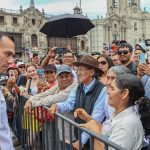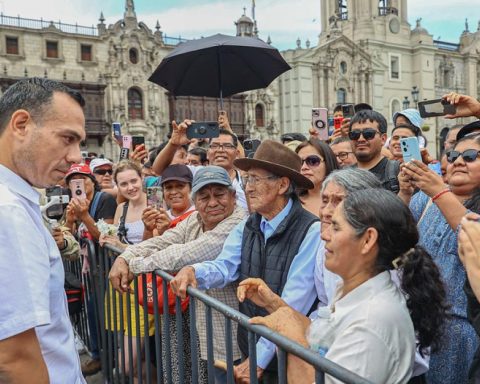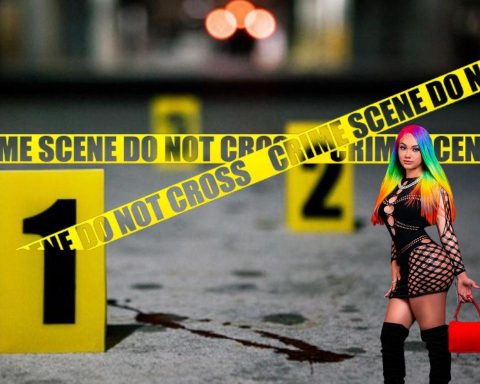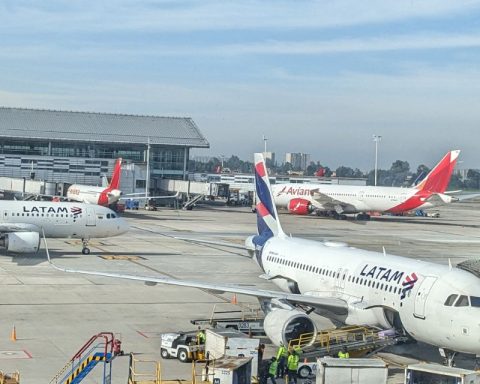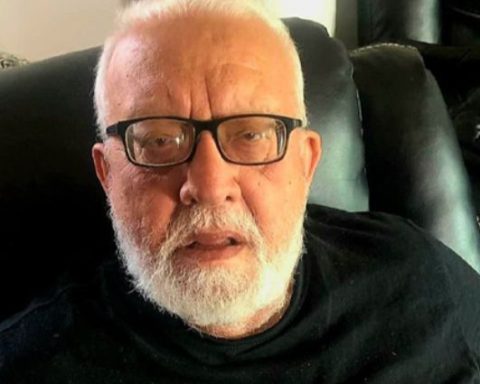The National Advisory Commission on Vaccination (CNAV) recommended this Wednesday that the third dose of the coronavirus vaccine become part of the basic immunization scheme for all those over 18 years of age, as he told The Observer the Minister of Public Health, Daniel Salinas. Until now, the vaccination schedule only required two doses.
In the event that this change takes place, if an event decides to request vaccination to allow people to enter, it will be necessary to have all three doses to be enabled.
The pediatric infectologist Álvaro Galiana was not present at the meeting this Wednesday, but he assured that the inclusion of the booster dose in the basic vaccination schedule against the virus It had already been discussed on other occasions. Galiana added that with this recommendation something that was already being done in practice is “passed to paper”, because it was already attributed to the third dose as necessary to combat the omicron variant of the virus in those over 18 years of age, even those on two doses of Pfizer.
Since the arrival of the coronavirus vaccine, in February 2021, the two-dose schedule was considered complete, even after starting vaccination with a booster dose in July. Ómicron, however, changed the plans: the head of the MSP’s Immunization Unit, Graciela Pérez, told The Observer in december that the third vaccine is “essential” to combat the new variant. “It is very important that people adhere to protection measures and get vaccinated,” Pérez said at the time.
This recommendation was made in conjunction with Vaccinate people 70 years of age or older, the population between 50 and 69 years of age with comorbidities, Down syndrome or who are in a residential facility, and immunosuppressed people with a fourth dose.
Minister Salinas explained at a press conference that for the first two groups it would be necessary an interval of six months from the last dose or from discharge in case of infectionwhile for those with some type of immunosuppression the wait it will be four months. Last week the CNAV had recommended the third dose for children between 12 and 17 years of age with comorbidities.
government recommendation
The exhortation to get vaccinated with a third dose was the government’s battle horse in the fight against the new wave of cases caused by the omicron variant. On several occasions, different authorities stressed the importance of receiving the third vaccine, and the Ministry of Public Health (MSP) has urged its application on several occasions.
“It is very important to emphasize the role that the third dose plays in avoiding hospitalization”, Salinas highlighted at a press conference on January 28. While cases rose steadily through early February, ICU cases and deaths also did so but in a much more stable way and separated from the increase in new casessomething that the portfolio awarded to the high levels of vaccination in the country. On February 15, 16 new deaths were reported and there were 162 cases in ICU.
On January 7, the Minister of Health indicated that due to the arrival of ómicron the number of interested in acquiring this vaccine “greatly increased”, something that I also connect with the reduction of the waiting time from six to four months between the second and third dose. By mid-December, 40% of the population had received the third dose, but the number it grew rapidly in early 2022 to over 50%.
More than half of the population
Until February 16, 53.56% of the population was vaccinated with the third dose of Pfizer against the virus. The age group that has the most coverage with the booster dose is that of people between 65 and 74 years old, with 85.5% of its vaccinated population, followed by people from 55 to 64 years old, who have 81.7% of their population with three vaccinations.
On the other hand, the weakest flank is the youngest adults: less than half (49.2%) of people aged 20 to 24 years were vaccinated with the booster doseY between 25 and 34 years old the number barely reaches 59.4%followed by the group between 35 and 44 years old with 70.6%.






